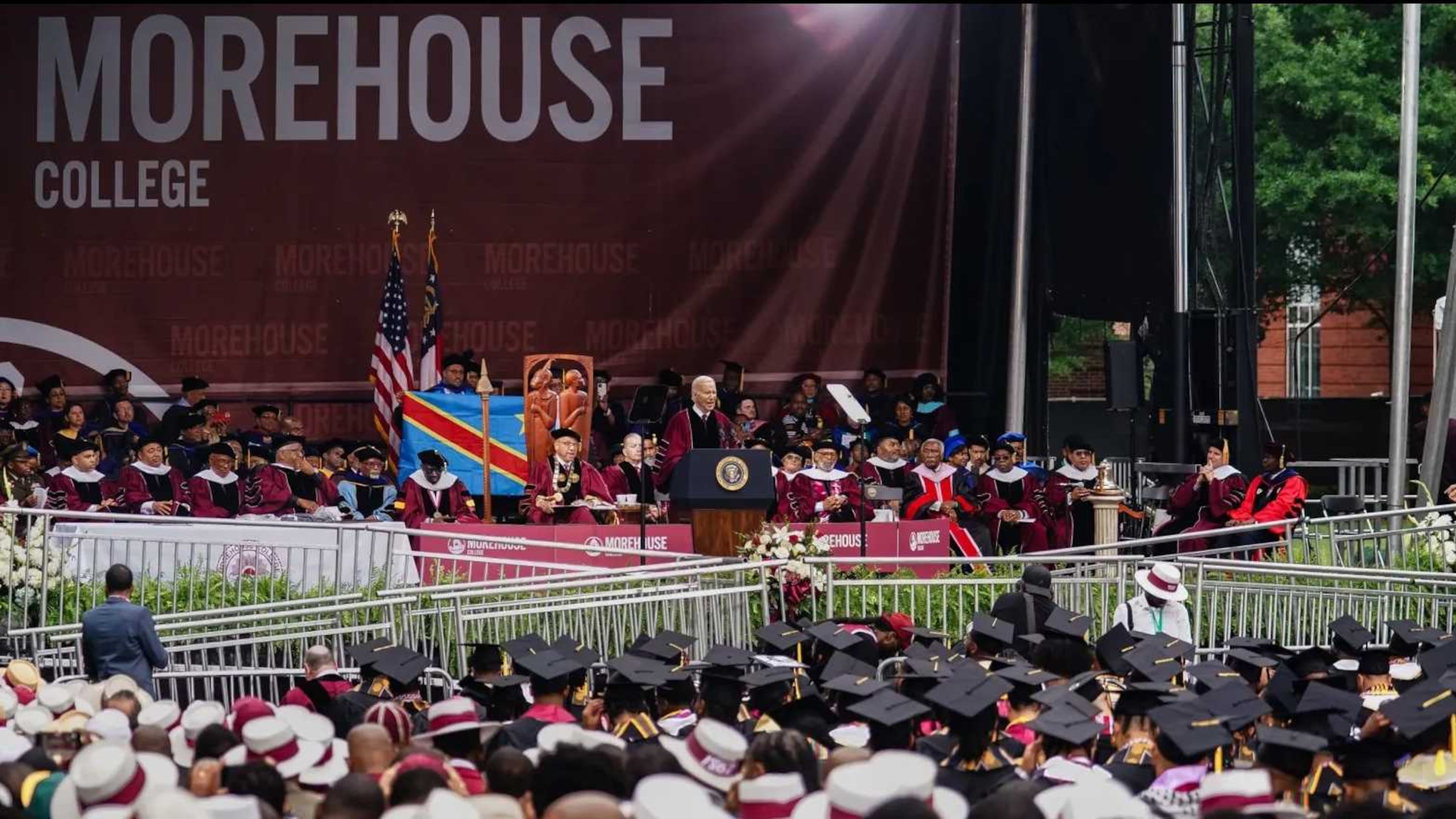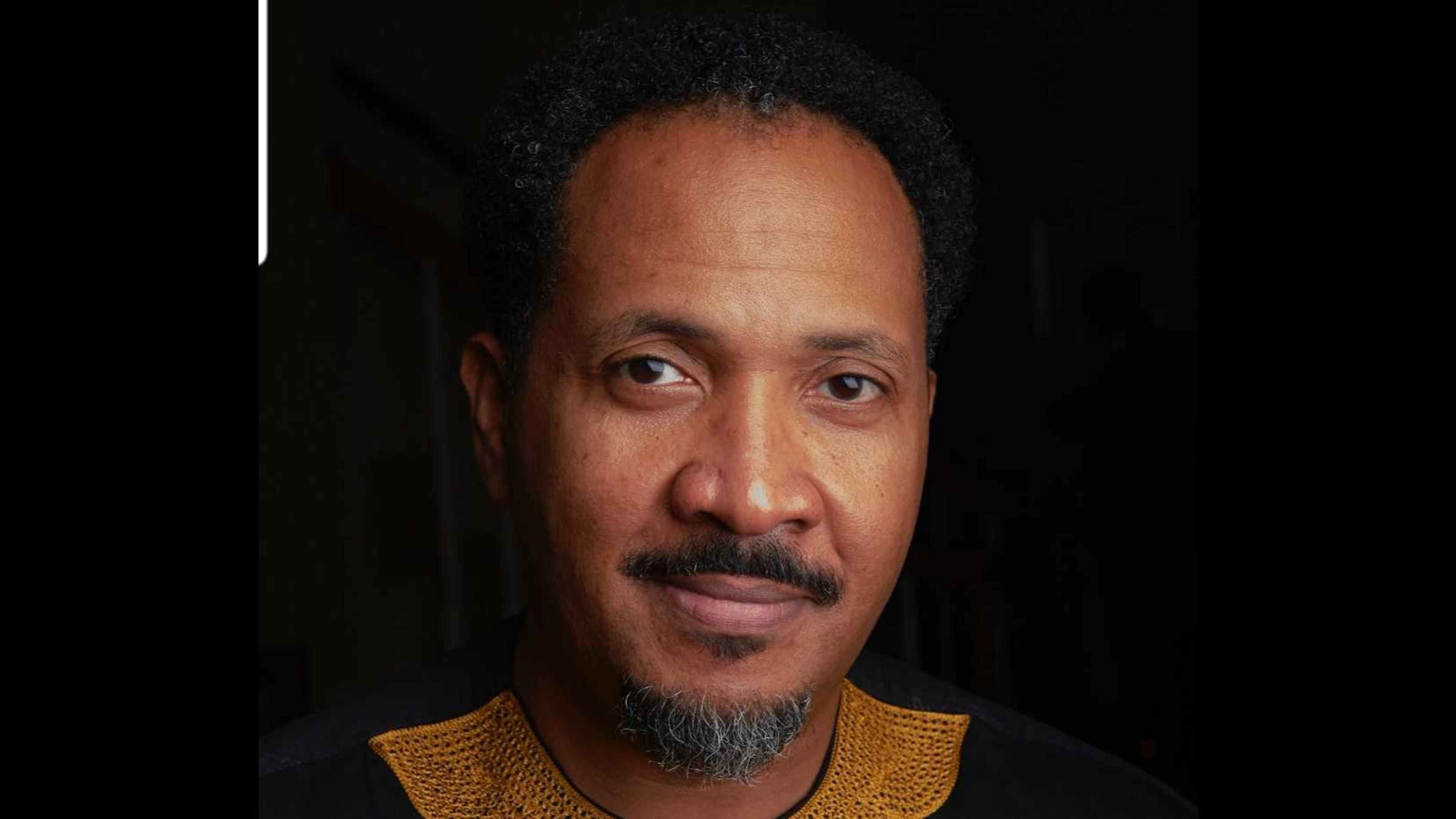Opinion: Why Georgians should care about the Congo and African democracy

All politics are local. The people of the Democratic Republic of Congo (DRC), although geographically distant, are culturally and historically close: About one in four African Americans who were enslaved were from that region. Their exploitation still drives our economy.
I began studying their history in college, but visiting DRC in 2014 helped me better understand how colonialism is intertwined in our politics. The friendships I made there are part of the reason why I decided to join a faculty protest of President Joe Biden’s commencement address at Morehouse College in May.
One of those friendships is with Kennedy Bindu, university professor and mayor of the besieged city of Goma. Bindu runs the civil government of this capital of North Kivu province alongside a military governor because a rebel encirclement that threatens overthrow and more bloodshed. Goma, in DRC’s eastern region, was a theater in the Congo Wars of the 1990s, which resulted in 5 million to 6 million deaths. It now hosts more than 2 million internally displaced persons (IDPs) from surrounding towns and villages seeking shelter from the Rwandan-backed M23 and other rebel movements. Georgians need to know about Bindu and his city and how the calculated misery of Congo supports our technology-driven standard of living.
Before being appointed mayor in 2022, Bindu was a widely respected professor at ULPGL, the Université Libre des Pays des Grands Lacs, a thriving campus full of students from kindergartners to graduate students. In 2014, ULPGL’s campus bore the marks of warfare set against the sounds of youthful education. In partnership with ULPGL, we brought Bindu to Morehouse as a Building African Leadership for the 21st Century symposium keynote speaker in 2016. He remains a professor at ULPGL, but as mayor, he has given hope to the city’s citizens. His leadership has drawn on his intelligence, character and faith to meet the daunting challenges facing his city — surrounding rebel attacks, their use of rape against Congolese women and war-induced hunger.

His name speaks to his Nyanga and Hunde cultural heritage and his parents’ deeply held belief in the power of American democracy as a model for their nation. They named him after our 35th president, John F. Kennedy. With the founding of the Center for Research on Democracy and Development in Africa (CREDDA) at ULPGL, his life’s work has followed his parents’ faith. His work mirrored the Telema youth movement that ousted the dictator, Joseph Kabila in 2018.
But the Congolese people’s efforts toward good governance have been criminally neglected by American elected leaders. U.S. foreign policy has plagued African people with death, corruption and exploitation. While activists in nations like DRC, Rwanda, and Sudan risk their lives to secure good governance, Democratic and Republican politicos backed the most inhumane and bloodstained dictatorial leaders — Mobutu Sese Seko in DRC and his modern, media-sanitized counterparts in Uganda (Yoweri Museveni) and Rwanda (Paul Kagame).
This dismissal of African democratic aspirations and movements is rooted in an ugly history of support of Belgium’s colonization of Congo and Europe’s carving up of Africa at the Berlin Conference. America cemented its exploitation of Congo by aiding in, if not planning, the assassination of its first democratically elected prime minister, Patrice Emery Lumumba, in 1961. Lumumba sought a partnership of equals, but, according to journalist David Talbot, U.S. President Dwight D. Eisenhower saw him as a disposable obstacle to the richest mineral deposits on Earth.
Since, U.S. foreign policy toward Congo has remained callously extractive, leaving a gaping opportunity that China has exploited, as journalist Howard French discusses. The destructive U.S. foreign policy on Congo is aided and abetted by our ignorance of global geography and history, a pattern that resonates differently within Democratic and Republican parties. For conservatives, Africans have no cultural capital with which they could build a model society. For liberals, Congo’s exploitation is an inconvenient set of facts that allows the U.S. economy to hum along as we post about our lives on phones powered by Congolese cobalt, tantalum and lithium.
Our tax dollars are supporting destructive wars in the DRC by way of Rwanda’s proxy M23 rebels. The paucity of attention to the conflict ignores not only the self-governance aspirations of Congolese people but also one of the world’s longest standing human rights crises and the critical role that Congo plays in the global economy. If the people in these nations were secured their long-held goals of good governance and political economies that serve the welfare of the majority of their people instead of a criminal elite, the expected growth could be historic in transforming a nation subsisting on aid to one that feeds and powers African and other people with their agriculture, energy and resource production.
The immediate objectives that Americans can pursue are simple but impactful. First, call on Biden to sanction Rwandan dictator Kagame, whose support of the M23 militia is the cause of thousands of deaths in DRC. Second, we must call on Biden to revoke his unjust amnesty offer to Dan Gertler, the Israeli mining magnate whom Congolese people have tried to bring to justice for years now. Lastly, support organizations such as Friends of the Congo, which supports Congolese people and organizations as they try to steady their own affairs.
As Americans gear up for a presidential election buffeted by nativist propaganda from 1619, 1776 and 2025 political projects, Congolese people are working toward democracy on their own terms. Supporting their efforts will affirm the best of Americans’ claimed belief in democracy.
Samuel Livingston is an associate professor of Africana Studies and History at Morehouse College.


